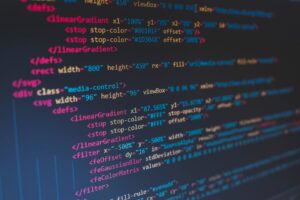
In the fast-evolving world of software development, staying productive isn’t just about writing code—it’s about using the right tools that streamline workflows, reduce context-switching, and enhance collaboration. As we step into 2025, the demand for high-performance and intelligent software tools continues to rise. Whether you’re a solo developer, a startup engineer, or part of a large tech team, equipping yourself with the best productivity tools can make all the difference.
In this article, we explore the top 10 must-have productivity software tools for developers in 2025, handpicked for performance, usability, and relevance to today’s coding landscape.
1. GitHub Copilot
Category: AI-powered Code Assistant
Why it’s essential:
GitHub Copilot uses AI (powered by OpenAI) to suggest whole lines or blocks of code directly in your editor. It’s a game-changer for boosting productivity, especially when dealing with repetitive code patterns or boilerplate.
Best for: Faster coding, learning new frameworks, and reducing mental load.
2. Notion
Category: Knowledge Management & Documentation
Why it’s essential:
Notion is a flexible all-in-one workspace where developers can document APIs, create to-do lists, manage sprints, and organize projects—all in one clean UI.
Best for: Project planning, documentation, and team collaboration.
3. Docker
Category: Development Environment & Containerization
Why it’s essential:
Docker allows developers to package and run applications in isolated environments, eliminating the “it works on my machine” problem. With Docker Compose and integrations in CI/CD pipelines, it’s more relevant than ever.
Best for: Reproducible environments and dev/ops consistency.
4. Visual Studio Code (VS Code)
Category: Code Editor
Why it’s essential:
VS Code remains the go-to editor for developers in 2025. With its massive plugin ecosystem, Git integration, debugging tools, and built-in terminal, it’s a lightweight yet powerful IDE.
Best for: Versatile development across languages and frameworks.
5. Raycast
Category: Productivity Launcher (macOS)
Why it’s essential:
Raycast replaces Spotlight on macOS with powerful shortcuts, custom scripts, and integrations (like Jira, GitHub, and Notion) to perform common dev tasks without leaving your keyboard.
Best for: Speeding up repetitive tasks and keeping focus.
6. Linear
Category: Issue Tracking & Project Management
Why it’s essential:
Designed specifically for software teams, Linear is faster and more developer-friendly than traditional project tools. It supports Git integrations, sprint workflows, and clean UI for focused work.
Best for: Bug tracking, agile planning, and team alignment.
7. Postman
Category: API Development & Testing
Why it’s essential:
Postman continues to be the gold standard for testing APIs, with features like automated testing, mock servers, and collaboration in teams.
Best for: API debugging, automation, and testing REST/GraphQL.
8. Tuple
Category: Remote Pair Programming
Why it’s essential:
Tuple is purpose-built for developers doing remote pair programming. It offers high-quality screen sharing, low latency, and collaboration tools that outperform traditional video tools for dev teams.
Best for: Distributed teams and real-time collaboration.
9. Slack + GitHub Integration
Category: Communication & Code Collaboration
Why it’s essential:
Slack remains the hub for team communication, and when integrated with GitHub, it allows instant notifications for pull requests, code pushes, and CI builds—keeping everyone in sync.
Best for: Team communication and devops feedback loops.
10. Obsidian
Category: Personal Knowledge Base
Why it’s essential:
Obsidian is perfect for developers who prefer Markdown-based, local-first note-taking. It excels at linking ideas, code snippets, and dev knowledge into a personal, searchable knowledge base.
Best for: Developers who like Zettelkasten-style knowledge management.
Final Thoughts
As software development grows more complex, having the right set of tools is not just a luxury—it’s a necessity. These top 10 productivity tools for developers in 2025 are built to empower you to write better code, collaborate efficiently, and focus on what truly matters: building great software.
Whether you’re an experienced engineer or just starting out, these tools will help you stay ahead of the curve in today’s fast-paced tech environment.






